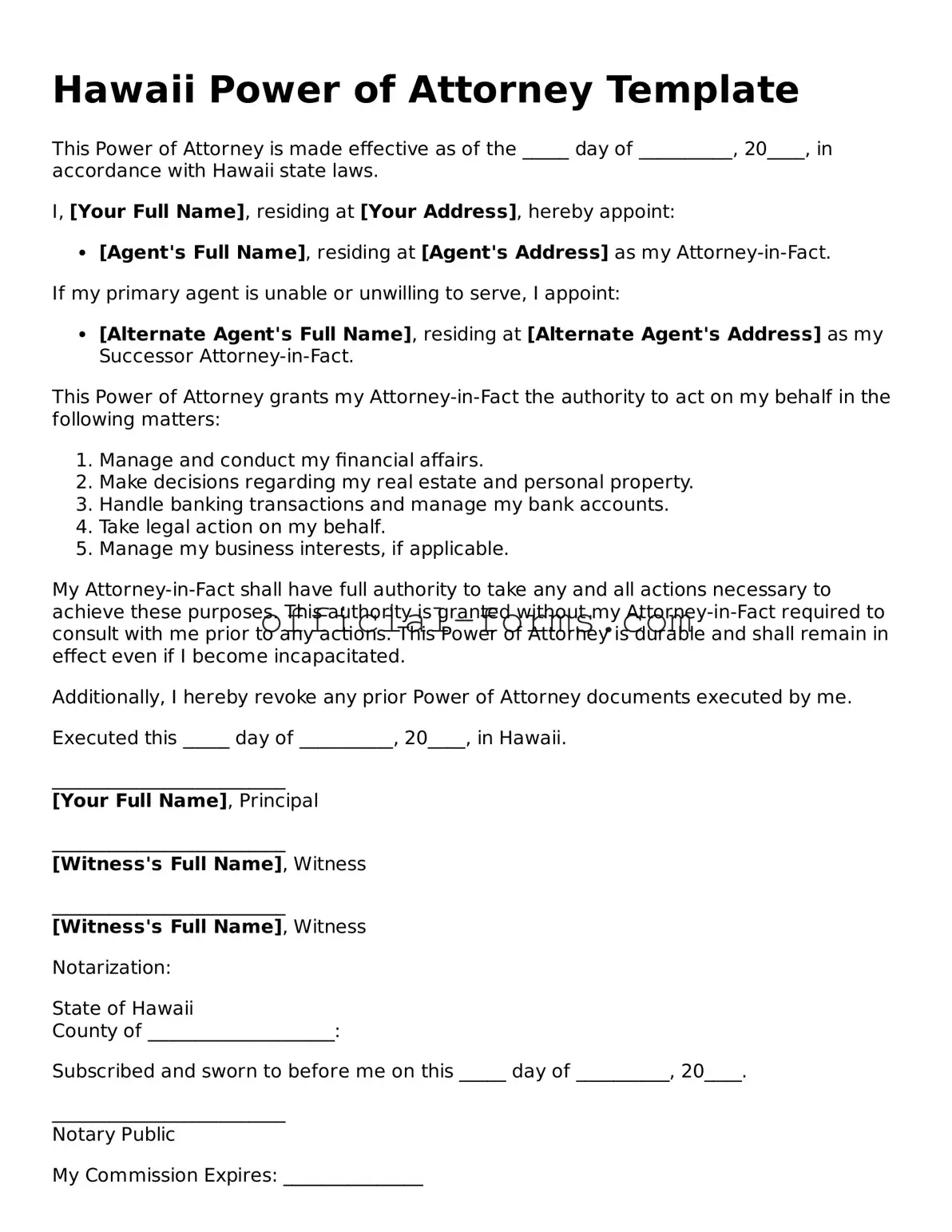Official Hawaii Power of Attorney Document
A Power of Attorney form in Hawaii is a legal document that allows one person to authorize another to act on their behalf in various matters, such as financial decisions or healthcare choices. This form is essential for ensuring that an individual's preferences are respected, particularly when they are unable to make decisions for themselves. Understanding the nuances of this document can empower individuals to make informed choices about their future and their loved ones' well-being.
Open My Power of Attorney Now

Official Hawaii Power of Attorney Document
Open My Power of Attorney Now
Don’t leave your form incomplete
Finish Power of Attorney online quickly from start to download.
Open My Power of Attorney Now
or
➤ PDF
